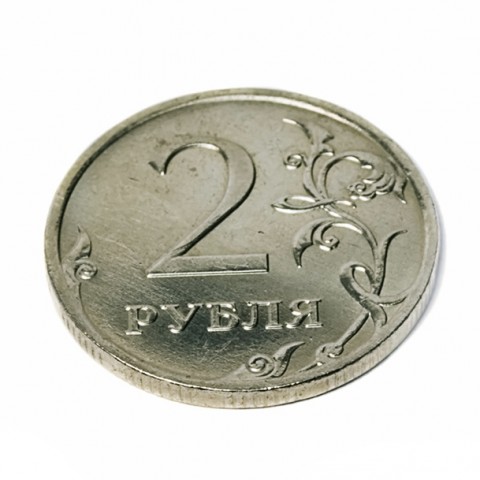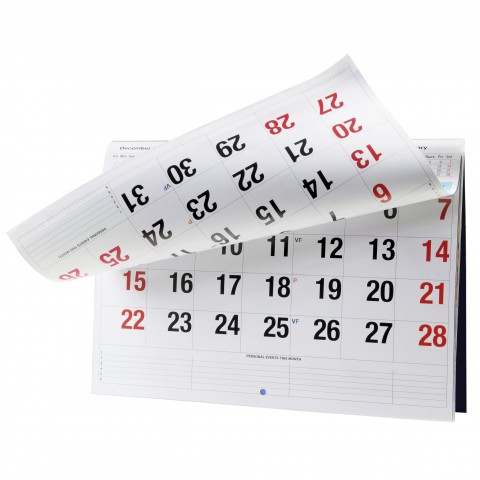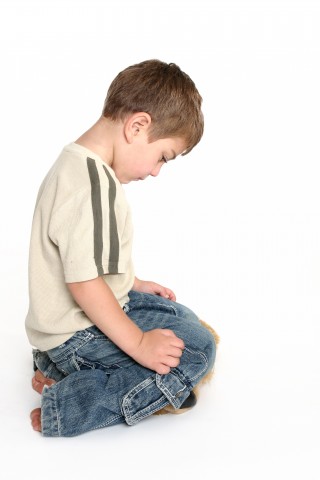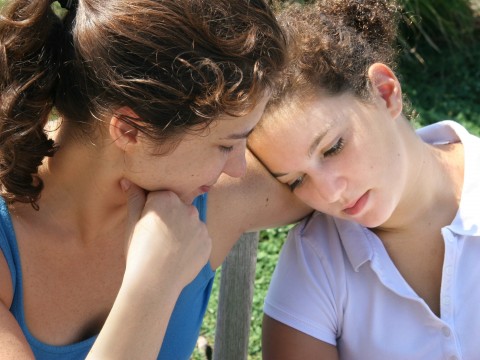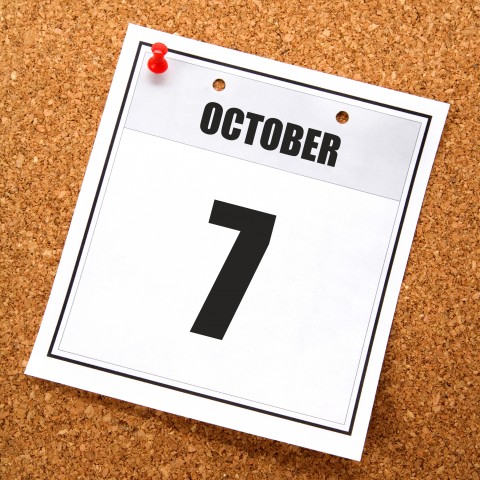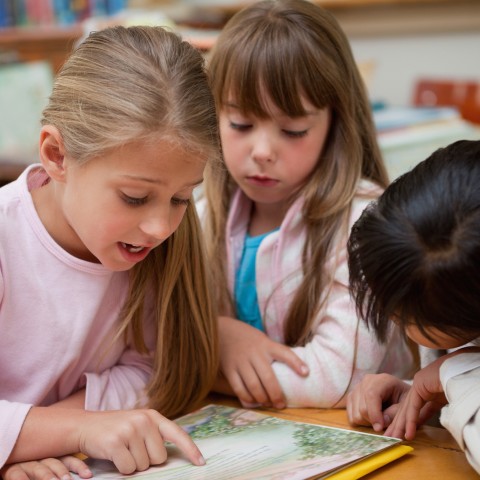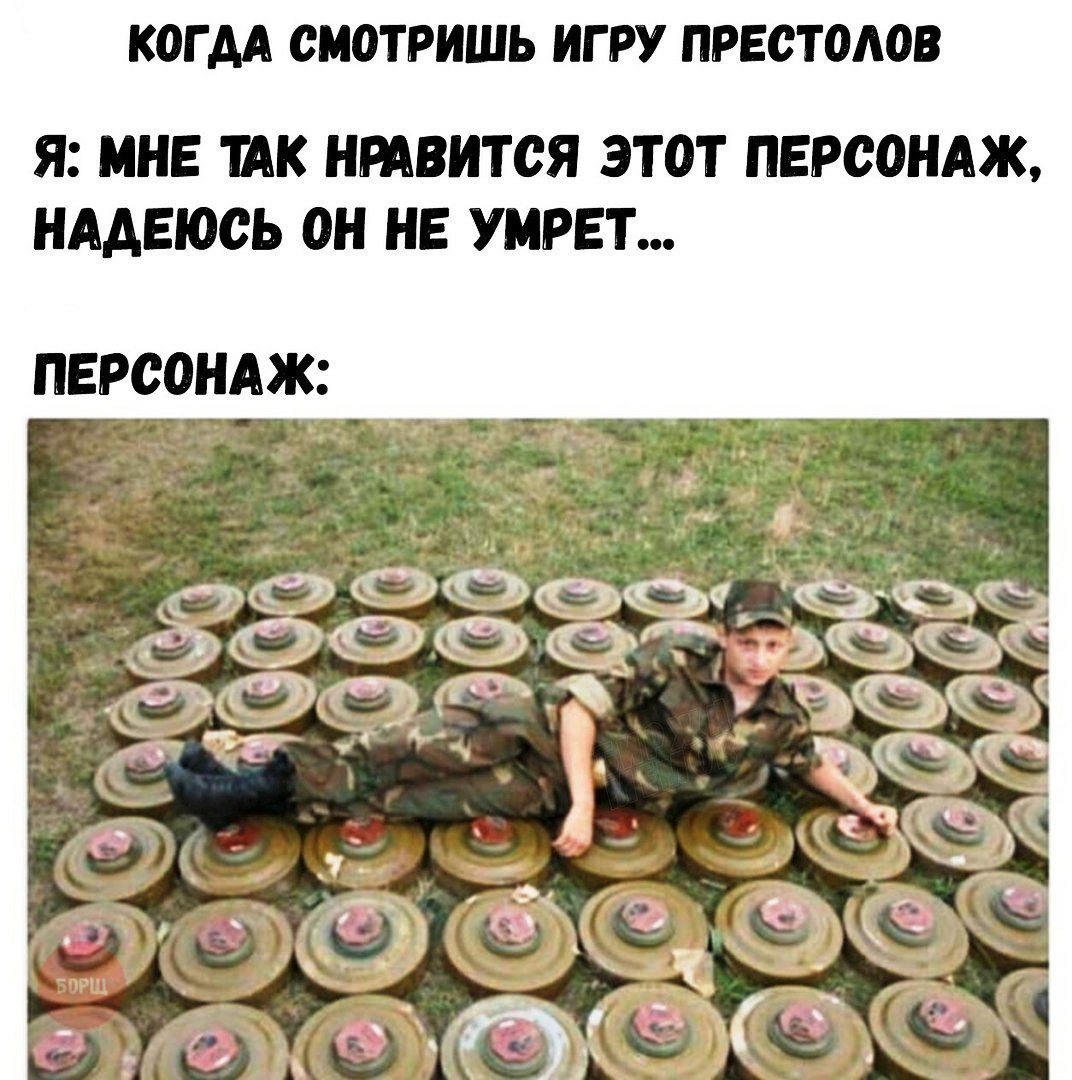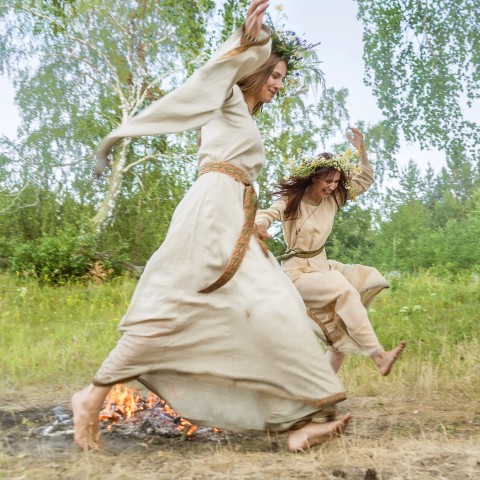
You’re learning to speak Russian, and it’s going well. Your confidence is growing! So much that you feel ready to share your experiences on social media—in Russian.
At Learn Russian, we make this easy for you to get it right the first time. Post like a boss with these phrases and guidelines, and get to practice your Russian in the process.

1. Talking about Your Restaurant Visit in Russian
Eating out is fun, and often an experience you’d like to share. Take a pic, and start a conversation on social media in Russian. Your friend will be amazed by your language skills…and perhaps your taste in restaurants!
Pasha eats at a restaurant with his friends, posts an image of it, and leaves this comment:

POST
Let’s break down Pasha’s post.
Ужин с лучшими друзьями. (Uzhin s luchshimi druz’yami.)
“Dinner with best friends.”
1- Ужин (Uzhin)
First is an expression meaning “Dinner.”
The word “ужин” is a masculine noun and has 3 meanings: 1. food, prepared for the evening meal 2. a meal taken in the evening. 3. a banquet or formal meal in honor of a person or event. The origin of “ужин” is unclear, however, some linguists suppose it is connected with the latin words “southern” and “midday”. You can also find related words in Polish, Bulgarian and Slovenian languages.
2- с лучшими друзьями (s luchshimi druz`yami)
Then comes the phrase – “with the best friends.”
Friendship is very important for Russians. In Russian culture all friends are divided into normal friends and best friends. It is considered that every person should have no more than 3-4 best friends. For friends in Russia it is commonplace to complain to each other about how severe life is, or to rely on friends to help solve one’s problems.
COMMENTS
In response, Pasha’s friends leave some comments.
1- Я тоже хочу к вам! (Ya tozhe khochu k vam!)
His girlfriend, Marina, uses an expression meaning – “I also want to join you!”
Marina would love to join the fun, and states it clearly.
2- Выглядит аппетитно. (Vyglyadit appetitno.)
His neighbor, Ira, uses an expression meaning – “Looks delicious.”
Ira comments on what the food looks like in a simple, easy comment.
3- Это вы где? (Eto vy gde?)
His supervisor, Ivan Petrovich, uses an expression meaning – “This is where are you?”
Ivan is making conversation with this question.
4- Хорошо вам посидеть! (Khorosho vam posidet’!)
His girlfriend’s high school friend, Oksana, uses an expression meaning – “Wish you a good time!”
Oksana extends a warm wish, a sweet way to be part of a conversation.
VOCABULARY
Find below the key vocabulary for this lesson:
ужин (uzhin): “dinner”
хотеть (khotet`): “to want”
аппетитно (appetitno): “appetizing”
где (gde): “where”
посидеть (posidet`): “to sit for a while”
лучший (luchshiy): “the best”
друзья (druz`ya): “friends”
выглядеть (vyglyadet`): “to look (like), to seem”
So, let’s practice a bit. If a friend posted something about having dinner with friends, which phrase would you use?
Now go visit a Russian restaurant, and wow the staff with your language skills!
2. Post about Your Mall Visit in Russian
Another super topic for social media is shopping—everybody does it, most everybody loves it, and your friends on social media are probably curious about your shopping sprees! Share these Russian phrases in posts when you visit a mall.
Marina shop with her sister at the mall, posts an image of it, and leaves this comment:

POST
Let’s break down Marina’s post.
Лучший допинг – это шоппинг! (Luchshiy doping – eto shopping!)
“The best doping is shopping!”
1- Лучший допинг – (Luchshiy doping – )
First is an expression meaning “The best doping.”
Here, the word “допинг” (doping) is used in an indirect way. In Russian, “допинг” can also mean something that stimulates creativity, a burst of energy. It is not necessarily because of drugs.
2- это шоппинг (eto shopping)
Then comes the phrase – “is shopping.”
Here, we have the masculine noun “шоппинг”, which came to Russian from English and means the same as “shopping”.
COMMENTS
In response, Marina’s friends leave some comments.
1- Что, снова нечего надеть? (Chto, snova nechego nadet’?)
Her nephew, Yura, uses an expression meaning – “What, again nothing to wear?”
Use this expression to show you are feeling cynical.
2- Где-то распродажи? (Gde-to rasprodazhi?)
Her boyfriend’s high school friend, Anya, uses an expression meaning – “Sales somewhere?”
Anya needs more information, so she asks this question. Questions are great conversation-starters.
3- Что купили? (Chto kupili?)
Her boyfriend, Pasha, uses an expression meaning – “What did you buy?”
Pasha is curious about his girlfriend’s purchase, so he asks this question.
4- Возьмите меня с собой! (Voz’mite menya s soboy!)
Her high school friend, Oksana, uses an expression meaning – “Take me with you!”
Oksana wishes she was with Marina! A fun, light expression.
VOCABULARY
Find below the key vocabulary for this lesson:
шоппинг (shopping): “shopping”
надеть (nadet`): “to wear”
где-то (gde-to): “somewhere”
купить (kupit`): “to buy”
взять (vzyat`): “to take”
нечего (nechego): “nothing”
распродажа (rasprodazha): “sale”
снова (snova): “again”
So, if a friend posted something about going shopping, which phrase would you use?
3. Talking about a Sport Day in Russian
Sportz events, whether you’re the spectator or the sports person, offer fantastic opportunity for great social media posts. Learn some handy phrases and vocabulary to start a sport-on-the-beach conversation in Russian.
Pasha plays with his friends at the beach, posts an image of it, and leaves this comment:

POST
Let’s break down Pasha’s post.
Мы победим! (My pobedim!)
“We’ll win!”
1- Мы (My)
First is an expression meaning “We.”
Here we have the pronoun that means the same as the English word “we”.
2- победим (pobedim)
Then comes the phrase – “will win.”
The word “победим” means “will win” in the future tense, and derives from the word “победа” – victory.
COMMENTS
In response, Pasha’s friends leave some comments.
1- Удачи! (Udachi!)
His girlfriend, Marina, uses an expression meaning – “Good luck!”
Sweet Marina is sure to encourage her boyfriend with this wish!
2- Какой счёт? (Kakoy shchyot?)
His supervisor, Ivan Petrovich, uses an expression meaning – “What`s the score?”
Ivan wants to know more details, showing his interest in the conversation.
3- Продули или нет? (Produli ili net?)
His girlfriend’s nephew, Yura, uses an expression meaning – “Lost or not?”
Yura is also curious about the score.
4- Надеюсь, не будет дождя. (Nadeyus’, ne budet dozhdya.)
His high school friend, Anya, uses an expression meaning – “I hope there won’t be rain.”
Anya is expressing a hope regarding weather that could affect the game. She’s showing that she’s interested in Pasha’s conversation.
VOCABULARY
Find below the key vocabulary for this lesson:
победить (pobedit`): “to win”
удача (udacha): “luck”
счёт (shchyot): “score, bill”
продуть (produt`): “to blow, to lose (a game) – sl.”
надеяться (nadeyat’sya): “to hope”
дождь (dozhd`): “rain”
мы (my): “we”
Which phrase would you use if a friend posted something about sports?
But sport is not the only thing you can play! Play some music, and share it on social media.
4. Share a Song on Social Media in Russian
Music is the language of the soul, they say. So, don’t hold back—share what touches your soul with your friends!
Marina shares a song she just heard at a party, posts an image of the artist, and leaves this comment:

POST
Let’s break down Marina’s post.
Рекомендую! (Rekomenduyu!)
“My recommendation!”
1- Рекомендую! (Rekomenduyu!)
Literally, this word means “I recommend”. As you know, all Russian verbs undergo conjugation depending on person and number. Therefore, in daily speech Russians can omit pronouns, as it is clear to them whom the verb is referring to. Use this pattern when you want to give your recommendations to your friends.
COMMENTS
In response, Marina’s friends leave some comments.
1- Классная песня! (Klassnaya pesnya!)
Her high school friend, Oksana, uses an expression meaning – “Cool song!”
WIth this post, Oksana shows that she knows the song and agrees with Marina about it.
2- Мне тоже нравится. (Mne tozhe nravitsya.)
Her neighbor, Ira, uses an expression meaning – “I also like it.”
Ira shares the same as Oksana with this comment.
3- А по-моему, не очень. (A po-moyemu, ne ochen’.)
Her boyfriend, Pasha, uses an expression meaning – “In my opinion, it’s not so good.”
Pasha qualifies that the statement is his opinion, and then shares that he doesn’t think it to be very good. All well here – it is delivered respectfully and pleasantly.
4- И как такое может кому-то нравиться. (I kak takoye mozhet komu-to nravit’sya.)
Her nephew, Yura, uses an expression meaning – “I can’t believe someone likes it!”
Yura doesn’t hold back on his dislike, though. This type of comment is probably best reserved for friends and family who knows you very well! Otherwise, it could come across as criticism and disrespectful. On the other hand it could mean that Marina’s nephew is teasing here; only they will know.
VOCABULARY
Find below the key vocabulary for this lesson:
рекомендовать (rekomendovat`): “to recommend”
классный (klassnyy): “cool”
нравиться (nravit’sya): “to like”
по-моему (po-moyemu): “in my opinion”
такой (takoy): “such”
песня (pesnya): “song”
тоже (tozhe): “also”
мочь (moch`): “to be able to, can”
Which song would you share? And what would you say to a friend who posted something about sharing music or videos?
Now you know how to start a conversation about a song or a video on social media!
5. Russian Social Media Comments about a Concert
Still on the theme of music—visiting live concerts and shows just have to be shared with your friends. Here are some handy phrases and vocab to wow your followers with in Russian!
Pasha goes to a concert, posts an image of him there, and leaves this comment:

POST
Let’s break down Pasha’s post.
Яркое событие в моей жизни. (Yarkoye sobytiye v moyey zhizni.)
“Important event in my life.”
1- Яркое событие (Yarkoye sobytiye)
First is an expression meaning: “Important event.”
The word “яркий” basically means “bright”. However, when talking about events, etc. the word “яркий” has an indirect meaning – “making a strong impression”, “not ordinary”. In our sentence, the adjective “яркий” is used in its neuter form – яркое. You can use the expression “Яркое событие” to say that there was/is/will be an event making a strong impression and even influencing something or someone.
2- в моей жизни (v moyey zhizni)
Then comes the phrase – “in my life.”
Here we have the phrase “в моей жизни” which is in the prepositional case. “В” means “in”, “моей” means “my” and “жизни” is the word for “life”.
COMMENTS
In response, Pasha’s friends leave some comments.
1- Фотки в студию. (Fotki v studiyu.)
His college friend, Denis, uses an expression meaning – “Show the pictures! (lit. present the pictures to everyone.)”
Denis is enthusiastic and wants to see more of this event.
2- И ты не сказал, что идёшь?? (I ty ne skazal, chto idyosh’??)
His girlfriend’s high school friend, Oksana, uses an expression meaning – “And you didn’t say that you’re going to go??”
Oksana seems indignant that Pasha wasn’t forthcoming with information about his attending this concert.
3- Одна из моих любимых групп. (Odna iz moikh lyubimykh grupp.)
His high school friend, Anya, uses an expression meaning – “One of my favorite bands.”
She partakes in the conversation by sharing a personal preference.
4- Концерт был супер! (Kontsert byl super!)
His girlfriend, Marina, uses an expression meaning – “The concert was great!”
Marina shares an opinion about the concert – good for conversation!
VOCABULARY
Find below the key vocabulary for this lesson:
событие (sobytiye): “event”
фотка (fotka): “photo (slang)”
сказать (skazat`): “to say”
любимый (lyubimyy): “favorite”
концерт (kontsert): “concert”
жизнь (zhizn’ ): “life”
группа (gruppa): “group, band”
супер (super): “super, cool”
If a friend posted something about a concert , which phrase would you use?
6. Talking about an Unfortunate Accident in Russian
Oh dear. You broke something by accident. Use these Russian phrases to start a thread on social media. Or maybe just to let your friends know why you are not contacting them!
Marina accidentally breaks her mobile phone, and leaves this comment:

POST
Let’s break down Marina’s post.
Телефон сломался… (Telefon slomalsya…)
“Phone is broken…”
1- Телефон (Telefon)
First is an expression meaning “Phone.”
You can use this word to talk about any phone: mobile, home phone or public phone. In daily speech it can also be used in the meaning of “phone number”. For example: “Give me your phone number” in Russian is “Дай мне свой телефон” (Day mne svoy telefon).
2- сломался (slomalsya)
Then comes the phrase – “is broken.”
You can use this verb to say that something no longer works, was broken, or broke down. In Russian, you can also use this verb to describe a person who lost strength, will, power, or is weak physically or mentally because of hard life circumstances. Russians often say: “Он сломался” (on slomalsya). – He cracked (under pressure).
COMMENTS
In response, Marina’s friends leave some comments.
1- Его можно починить. (Yego mozhno pochinit’.)
Her boyfriend, Pasha, uses an expression meaning – “It can be repaired.”
Pasha seems to feel positive that the event is not so serious.
2- Как это случилось? (Kak eto sluchilos’?)
Her neighbor, Ira, uses an expression meaning – “How did it happen? (Kak eto sluchilos’?)”
Ira would like more detail by asking this question. Questions are great to keep a conversation going on social media.
3- Хороший повод купить новый. (Khoroshiy povod kupit’ novyy.)
Her high school friend, Oksana, uses an expression meaning – “That’s a good reason to buy a new one.”
Oksana’s opinion differs from Pasha, and her comment is also slightly more positive!
4- Всё, что ни делается, всё к лучшему! (Vsyo, chto ni delayetsya, vsyo k luchshemu!)
Her boyfriend’s high school friend, Anya, uses an expression meaning – “Things work out for the best.”
Anya chooses to leave an encouraging, if not somewhat philosophical opinion.
VOCABULARY
Find below the key vocabulary for this lesson:
телефон (telefon): “phone”
починить (pochinit`): “to fix, to repair”
случиться (sluchit’sya): “to happen”
повод (povod): “reason, occasion”
Всё, что ни делается, всё к лучшему! (Vsyo, chto ni delayetsya, vsyo k luchshemu.): “Things work out for the best.”
сломаться (slomat’sya): “to break”
хороший (khoroshiy): “good”
новый (novyy): “new”
If a friend posted something about having broken something by accident, which phrase would you use?
So, now you know how to describe an accident in Russian. Well done!
7. Chat about Your Boredom on Social Media in Russian
Sometimes, we’re just bored with how life goes. And to alleviate the boredom, we write about it on social media. Add some excitement to your posts by addressing your friends and followers in Russian!
Pasha gets bored at home, and leaves this comment:

POST
Let’s break down Pasha’s post.
Скучно… (Skuchno…)
“Bored…”
1- Скучно… (Skuchno…)
“Скучно” is an adjective. You can use it to express that you are bored right now or that an action or process is boring. To say “I am bored” in Russian, just add the pronoun “me” in the dative case, which is “мне”, so it will become “Мне скучно”.
COMMENTS
In response, Pasha’s friends leave some comments.
1- По пивку? (Po pivku?)
His college friend, Denis, uses an expression meaning – “Let’s drink (beer)?”
Denis has a solution to Pasha’s predicament that guys usually like.
2- Я знаю неподалёку одно хорошее местечко. (Ya znayu nepodalyoku odno khorosheye mestechko.)
His girlfriend’s nephew, Yura, uses an expression meaning – “I know a good place not far away.”
Yura pipes in to support Denis’ idea, offering information.
3- Присоединюсь к вам после работы. (Prisoyedinyus’ k vam posle raboty.)
His girlfriend’s high school friend, Oksana, uses an expression meaning – “I’ll join you after work.”
Oksana seems keen to join the guys drinking beer to alleviate boredom.
4- Работа – лучшее лекарство от скуки. (Rabota – luchsheye lekarstvo ot skuki.)
His supervisor, Ivan Petrovich, uses an expression meaning – “Work is the best medicine for boredom.”
Ivan is the first one to break this line of conversation, offering some sage advice.
VOCABULARY
Find below the key vocabulary for this lesson:
скучно (skuchno): “bored”
пиво (pivo): “beer”
неподалёку (nepodalyoku): “not far”
присоединиться (prisoyedinit’sya): “to join”
лекарство (lekarstvo): “medicine”
работа (rabota): “job, work”
скука (skuka): “boredom”
местечко (mestechko): “place (conversational)”
If a friend posted something about being bored, which phrase would you use?
Still bored? Share another feeling and see if you can start a conversation!
8. Exhausted? Share It on Social Media in Russian
Sitting in public transport after work, feeling like chatting online? Well, converse in Russian about how you feel, and let your friends join in!
Marina feels exhausted after a long day at work, posts an image of herself looking tired, and leaves this comment:

POST
Let’s break down Marina’s post.
Устала… (Ustala…)
“Tired…”
1- Устала (Ustala)
Here, we have the verb in the past tense – “устала”, “tired”. The ending [a] shows that this verb can be used by women. Men should say “Устал” (ustal). If you want to emphasize that you are exhausted or dead tired, you can say “Устала до смерти”, if you are a female and “Устал до смерти” if you are a male. It literally means “Tired till death”, “So tired that gonna die”.
COMMENTS
In response, Marina’s friends leave some comments.
1- Береги себя. (Beregi sebya.)
Her neighbor, Ira, uses an expression meaning – “Take care of yourself.”
Ira offers warmhearted advice.
2- Давай приезжай домой поскорее. (Davay priyezzhay domoy poskoreye.)
Her boyfriend, Pasha, uses an expression meaning – “Come back home as soon as possible.”
Does Pasha have a surprise for his tired girlfriend, perhaps…?!
3- Может, возьмёшь такси? (Mozhet, voz’myosh’ taksi?)
Her neighbor, Ira, uses an expression meaning – “Maybe you could take a taxi?”
Ira also offers advice, thinking that a taxi-ride may be less tiring for the tired Marina.
4- Ничего не поделаешь – работа есть работа. (Nichego ne podelayesh’ – rabota yest’ rabota.)
Her nephew, Yura, uses an expression meaning – “There’s nothing we can do – a job is a job.”
Yura feels he needs to explain that fatigue is an inevitable part of work life. He is perhaps younger and wants to partake in the conversation.
VOCABULARY
Find below the key vocabulary for this lesson:
устать (ustat’ ): “to get tired”
беречь (berech’ ): “to save, to preserve, to take care of”
поскорее (poskoreye): “as soon as possible, somewhat quicker”
может (mozhet): “maybe”
ничего не поделаешь (nichego ne podelayesh’ ): “there’s nothing to be done”
приезжать (priyezzhat’ ): “to come, to arrive (by means of transportation)”
такси (taksi): “taxi”
взять (vzyat`): “to take”
If a friend posted something about being exhausted, which phrase would you use?
Now you know how to say you’re exhausted in Russian! Well done.
9. Talking about an Injury in Russian
So life happens, and you manage to hurt yourself during a soccer game. Very Tweet-worthy! Here’s how to do it in Russian.
Pasha suffers a painful injury during a soccer game, posts an image of it, and leaves this comment:

POST
Let’s break down Pasha’s post.
Растянул лодыжку (Rastyanul lodyzhku.)
“I sprained my ankle.”
1- Растянул (rastyanul)
First is an expression meaning “sprained.”
You can use this verb not only when talking about an injury caused by a sudden movement, but also in the meaning “to make something longer or wider without tearing or breaking. ”
2- лодыжку (loduzhku)
Then comes the phrase – “ankle.”
Here, we have the word “лодыжка” in the accusative case, which means “ankle.”
COMMENTS
In response, Pasha’s friends leave some comments.
1- Боевая травма? (Boyevaya travma?)
His girlfriend, Marina, uses an expression meaning – “Fight trauma?”
Marina seems to be joking here with Pasha, wondering if he sustained this injury in a fight.
2- Может, в больницу? (Mozhet, v bol’nitsu?)
His neighbor, Ira, uses an expression meaning – “Maybe you should go to the hospital?”
Ira is more concerned for his well being and wonders if he needs medical attention.
3- Это полуболь, у тебя ещё есть вторая нога. (Eto polubol’, u tebya yeshchyo yest’ vtoraya noga.)
His college friend, Denis, uses an expression meaning – “You have half the pain because your other leg is healthy.”
Denis is also trying to alleviate his friend’s suffering with a joke.
4- Боль в ноге делает мир мрачным. (Bol’ v noge delayet mir mrachnym.)
His girlfriend’s high school friend, Oksana, uses an expression meaning – “The pain in his leg makes the world dark.”
Oksana uses this comment to show her sympathy with Pasha’s pain.
VOCABULARY
Find below the key vocabulary for this lesson:
лодыжка (loduzhka): “ankle”
травма (travma): “injury”
больница (bol`nitsa): “hospital”
нога (noga): “leg”
мрачный (mrachnyy): “dark, bleak, gloomy”
боевой (boyevoy): “battle; fighting”
боль (bol’ ): “pain”
мир (mir): “world, peace”
If a friend posted something about being injured, which phrase would you use?
We love to share our fortunes and misfortunes; somehow that makes us feel connected to others.
10. Starting a Conversation Feeling Disappointed in Russian
Sometimes things don’t go the way we planned. Share your disappointment about this with your friends!
Marina feels disappointed about today’s weather, posts an image of it, and leaves this comment:

POST
Let’s break down Marina’s post.
Погода ужасная. (Pogoda uzhasnaya.)
“The weather is awful.”
1- Погода (Pogoda)
First is an expression meaning “The weather .”
Here, we have the word “погода”, which means the same as the English word “weather”.
2- ужасная (uzhasnaya)
Then comes the phrase – “is awful.”
The feminine adjective “ужасная” means “awful”. The masculine adjective is “ужасный”. Just put the appropriate noun of masculine or feminine gender to express your opinion about an “awful character”, an “awful day” and even an “awful person”.
COMMENTS
In response, Marina’s friends leave some comments.
1- Надоел дождь. (Nadoyel dozhd’.)
Her high school friend, Oksana, uses an expression meaning – “I’m tired of rain.”
Oksana shares a personal feeling about the weather – a good way to make conversation.
2- Никуда не хочется выходить. (Nikuda ne khochetsya vykhodit’.)
Her neighbor, Ira, uses an expression meaning – “I don’t want to go out anywhere.”
Ira continues to elaborate on why rainy days suck.
3- Льёт как из ведра. (L’yot kak iz vedra.)
Her boyfriend, Pasha, uses an expression meaning – “It’s raining cats and dogs.”
Pasha does the same as the others, but he uses a common expression that means the same in English as in Russian – it rains a big lot!
4- Можно посмотреть телик или почитать книжку. (Mozhno posmotret’ telik ili pochitat’ knizhku.)
Her nephew, Yura, uses an expression meaning – “You can watch TV or read a book.”
Yura feels he knows what Marina should do to alleviate her boredom, and he shares his wisdom.
VOCABULARY
Find below the key vocabulary for this lesson:
погода (pogoda): “weather”
дождь (dozhd`): “rain”
выходить (vykhodit`): “to go out”
Льёт как из ведра. (L`yot kak iz vedra): “The rain is pouring.”
телик (telik): “TV (slang)”
ужасный (uzhasnyy): “awful, horrible”
почитать (pochitat`): “to read (for a short time)”
книжка (knizhka): “book”
How would you comment in Russian when a friend is disappointed?
Not all posts need to be about a negative feeling, though!
11. Talking about Your Relationship Status in Russian
Don’t just change your relationship status in Settings, talk about it!
Pasha changes his status to “In a relationship”, posts an image of himself with Marina and leaves this comment:

POST
Let’s break down Pasha’s post.
Твоя любовь даёт мне крылья. (Tvoya lyubov’ dayot mne kryl’ya.)
“Your love gives me wings”
1- Твоя любовь (Tvoya lyubov`)
First is an expression meaning “Your love.”
In the Russian language, “Love” – Любовь (Lyubov`) is a common female name.
2- даёт мне крылья (dayot mne kryl`ya)
Then comes the phrase – “it gives me wings.”
You can use this expression to say that something inspires you. Just put the noun or phrase before “даёт мне крылья” to express what things or people inspire you.
COMMENTS
In response, Pasha’s friends leave some comments.
1- Кто эта счастливица? (Kto eta shchastlivitsa?)
His girlfriend’s high school friend, Oksana, uses an expression meaning – “Who’s the lucky one?”
Oksana is making fun of her friends with this comments.
2- Поздравляю! (Pozdravlyayu!)
His neighbor, Ira, uses an expression meaning – “Congratulations! ”
This is the traditional, commonly-used comment when receiving good news of this kind.
3- Ура! (Ura!)
His high school friend, Anya, uses an expression meaning – “Hurrah!”
Anya is feeling both enthusiastic and optimistic about this relationship.
4- И когда ты успеваешь… (I kogda ty uspevayesh’…)
His supervisor, Ivan Petrovich, uses an expression meaning – “And when do you have time for this…”
Ivan can be either pedantic with this comment, or he’s making fun of the two lovebirds. It would all depend on the relationship Marina and Pasha have with their supervisor.
VOCABULARY
Find below the key vocabulary for this lesson:
крылья (krul`ya): “wings”
поздравлять (pozdravlyat`): “to congratulate”
ура (ura): “hurrah”
успевать (uspevat`): “to have time”
любовь (lyubov’ ): “love”
давать (davat`): “to give”
What would you say in Russian when a friend changes their relationship status?
Being in a good relationship with someone special is good news – don’t be shy to spread it!
12. Post about Getting Married in Russian
Wow, so things got serious, and you’re getting married. Congratulations! Or, your friend is getting married, so talk about this in Russian.
Marina is getting married to Pasha today, so she leaves this comment:

POST
Let’s break down Marina’s post.
Самое счастливое событие в моей жизни. (Samoye schastlivoye sobytiye v moyey zhizni.)
“The happiest event in my life.”
1- Самое счастливое событие (Samoye shchastlivoye sobytiye)
First is an expression meaning “The happiest event.”
A phrase commonly used to express that something important is going to happen on a certain day.
2- в моей жизни (v moyey zhizni)
Then comes the phrase – “in my life.”
Here we have the phrase “в моей жизни” which is in the prepositional case. “В” means “in”, “моей” means “my” and “жизни” is the word for “life”.
COMMENTS
In response, Marina’s friends leave some comments.
1- Счастливой семейной жизни! (Schastlivoy semeynoy zhizni!)
Her neighbor, Ira, uses an expression meaning – “Happy family life!”
Ira leaves a warm wish on her neighbour’s feed.
2- Совет да любовь! (Sovet da lyubov’!)
Her husband’s high school friend, Anya, uses an expression meaning – “May you live happily!”
Anya also wishes the couple happiness, a common comment for this occasion.
3- Ещё раз поздравляю вас! (Yeshchyo raz pozdravlyayu vas!)
Her college friend, Denis, uses an expression meaning – “Once again, congratulations!”
Denis personalizes his congratulations, probably referring to the time Pasha announced their relationship.
4- Уже решили, куда поедете в свадебное путешествие? (Uzhe reshili, kuda poyedete v svadebnoye puteshestviye?)
Her supervisor, Ivan Petrovich, uses an expression meaning – “Have you already decided where you’ll go on your honeymoon?”
Ivan makes friendly conversation with this question, showing his interest in the couple’s wellbeing.
VOCABULARY
Find below the key vocabulary for this lesson:
счастливый (shchastlivyy): “happy”
семейный (semeynyy): “family”
Совет да любовь! (Sovet da lyubov`.): “May you live happily!”
поздравлять (pozdravlyat`): “to congratulate”
свадебное путешествие (swadebnoye puteshestviye): “wedding journey”
событие (sobytiye): “event”
решить (reshit`): “to decide”
путешествие (puteshestviye): “journey, trip”
How would you respond in Russian to a friend’s post about getting married?
For the next topic, fast forward about a year into the future after the marriage…
13. Announcing Big News in Russian
Wow, huge stuff is happening in your life! Announce it in Russian.
Pasha is sharing the news that he and his wife are going to have a baby soon, posts an image of him and a pregnant Marina, and leaves this comment:

POST
Let’s break down Pasha’s post.
На следующей неделе стану отцом. (Na sleduyushchey nedele stanu otsom.)
“Next week I will become a father.”
1- На следующей неделе (Na sleduyushchey nedele)
First is an expression meaning “Next week.”
Here we have the phrase “на следующей неделе” which is in the prepositional case. “на” means “on”, “следующей” means “next” and “неделе” is the word for “week”.
2- стану отцом (stanu otsom)
Then comes the phrase – “I will become a father.”
In the Russian language, there are two words that mean “father”: “папа” (papa) – dad and “отец” (otets) – father. “Отец” (otets) is the formal version. “Папа” (papa) sounds more tender to native Russians.
COMMENTS
In response, Pasha’s friends leave some comments.
1- Мальчик или девочка? (Mal’chik ili devochka?)
His neighbor, Ira, uses an expression meaning – “Boy or girl?”
Ira makes conversation by wanting to know more details of the pregnancy. He also shows interest in their big life event.
2- Скоро у меня появится новый родственник. (Skoro u menya poyavitsya novyy rodstvennik.)
His nephew, Yura, uses an expression meaning – “I’m getting a new relative soon.”
Yura is enthusiastic about this fact, it seems.
3- Легких вам родов! (Lyogkikh vam rodov!)
His high school friend, Anya, uses an expression meaning – “May your childbirth be easy!”
Anya thinks of Marina and wishes her well for the birth.
4- Пусть малыш родится здоровым! (Pust’ malysh roditsya zdorovym!)
His college friend, Denis, uses an expression meaning – “I wish your baby is born healthy!”
Denis also extends a friendly, warm wish for the baby’s wellbeing.
VOCABULARY
Find below the key vocabulary for this lesson:
следующий (sleduyushchiy): “next”
мальчик (mal`chik): “boy”
родственник (rodstvennik): “relative”
роды (rody): “childbirth”
малыш (malysh): “kid, baby”
неделя (nedelya): “week”
скоро (skoro): “soon”
здоровый (zdorovyy): “healthy”
Which phrase would you choose when a friend announces their pregnancy on social media?
So, talking about a pregnancy will get you a lot of traction on social media. But wait till you see the responses to babies!
14. Posting Russian Comments about Your Baby
Your bundle of joy is here, and you cannot keep quiet about it! Share your thoughts in Russian.
Marina plays with her baby, posts an image of the cute little one, and leaves this comment:

POST
Let’s break down Marina’s post.
Наше маленькое чудо. (Nashe malen’koye chudo.)
“Our little miracle.”
1- Наше (Nashe)
First is an expression meaning “Our.”
Here we have the pronoun “наше”, which means “our”. You can use it only with nouns of neuter gender.
2- маленькое чудо (malen`koye chudo)
Then comes the phrase – “small miracle.”
Here we have the noun “miracle” – чудо “chudo”. It refers to a baby. You can use this word to talk about an extraordinary and remarkable event as well as about something unusual and mysterious. Russians often say : Дети – это чудо. – Kids are miracles.
COMMENTS
In response, Marina’s friends leave some comments.
1- Вылитый папа. (Vylityy papa.)
Her husband, Pasha, uses an expression meaning – “Looks like dad.”
Dad seems to be very proud, and claims that the baby inherited his looks.
2- А мне кажется, что ребёнок больше похож на маму. (A mne kazhetsya, chto rebyonok bol’she pokhozh na mamu.)
Her neighbor, Ira, uses an expression meaning – “I think the kid looks more like its mother.”
Ira doesn’t agree with Pasha, moving the conversation along nicely. This is a friendly comment.
3- Какой красивый малыш! Поздравляю! (Kakoy krasivyy malysh! Pozdravlyayu!)
Her husband’s high school friend, Anya, uses an expression meaning – “What a beautiful baby! Congratulations!”
Anya feels happy for the couple, and appreciative of the baby’s good looks. But then – all babies tend to be beautiful!
4- Как назвали? (Kak nazvali?)
Her supervisor, Ivan Petrovich, uses an expression meaning – “How did you call him? (What`s his name?)”
Ivan shows his interest in the conversation by asking a question, which is appropriate.
VOCABULARY
Find below the key vocabulary for this lesson:
чудо (chudo): “miracle”
вылитый (vylityy): “exactly like”
быть похожим (byt` pokhozhim): “to look like”
красивый (krasivyy): “beautiful”
называть (nazyvat`): “to call”
ребёнок (rebyonok): “child”
казаться (kazat’sya): “to seem, to appear”
If your friend is the mother or father, which phrase would you use on social media?
Congratulations, you know the basics of chatting about a baby in Russian! But we’re not done with families yet…
15. Russian Comments about a Family Reunion
Family reunions – some you love, some you hate. Share about it on your feed.
Pasha goes to a family gathering, posts an image of it, and leaves this comment:

POST
Let’s break down Pasha’s post.
Вся семья в сборе. (Vsya sem’ya v sbore.)
“The whole family is assembled. (gathered together)”
1- Вся семья (Vsya sem`ya)
First is an expression meaning “The whole family.”
Here we have the phrase “вся семья” which means “the whole family”. “Вся” means “whole” and “семья” means “family”. Russian families are basically very friendly. Children, parents, grandparents closely communicate with each other and help each other. Many children spend their summer vacations at their grandparent’s house in the village.
2- в сборе (v sbore)
Then comes the phrase – “reunion.”
This phrase literally means “is assembled”. You can use it to say that people are gathered in one place for a common purpose. One of the most common phrases in Russian is “Все в сборе” (vse v sbore) – “all are assembled.”
COMMENTS
In response, Pasha’s friends leave some comments.
1- Как родители? (Kak roditeli?)
His nephew, Yura, uses an expression meaning – “How are your parents?”
Yura shows a caring, considerate side with this comment.
2- А малыш-то подрос! (A malysh-to podros!)
His college friend, Denis, uses an expression meaning – “But the baby has grown up though!”
Denis makes an observation about the couple’s baby, making conversation by showing he paid attention to the photo.
3- Твоя мама выглядит замечательно! (Tvoya mama vyglyadit zamechatel’no!)
His supervisor, Ivan Petrovich, uses an expression meaning – “Your mother looks great!”
Ivan is showing consideration for family, and compliments Pasha’s mother to boot.
4- Передавай всем привет! (Peredavay vsem privet!)
His high school friend, Anya, uses an expression meaning – “Send my regards to everyone.”
Anya is greeting Pasha’s family, showing her interest and consideration.
VOCABULARY
Find below the key vocabulary for this lesson:
в сборе (v sbore): “assemble, assembled”
родители (roditeli): “parents”
подрасти (podrasti): “to grown up (a little bit)”
выглядеть (vyglyadet`): “to look”
передавать (peredavat`): “to pass, to transmit”
семья (sem`ya): “family”
замечательно (zamechatel`no): “great”
привет (privet): “greeting, regards, hello”
Which phrase is your favorite to comment on a friend’s photo about a family reunion?
16. Post about Your Travel Plans in Russian
So, the family are going on holiday. Do you know how to post and leave comments in Russian about being at the airport, waiting for a flight?
Marina waits at the airport for her flight, posts an image of it, and leaves this comment:

POST
Let’s break down Marina’s post.
Наконец-то отпуск! (Nakonets-to otpusk!)
“Finally vacation!”
1- Наконец-то (nakonets-ta)
First is an expression meaning “Finally.”
You can use this word to express that something has finally happened after a long wait or some difficulty.
2- отпуск (otpusk)
Then comes the phrase – “vacation.”
You can use this word only when talking about work vacations, often with pay granted to an employee. You cannot use it when talking about vacations from schools or universities.
COMMENTS
In response, Marina’s friends leave some comments.
1- Счастливого пути! (Schastlivogo puti!)
Her neighbor, Ira, uses an expression meaning – “Have a good trip!”
This is a common wish for a pleasant trip, a traditional expression when someone leaves on holiday.
2- Хорошего отдыха! (Khoroshego otdykha!)
Her high school friend, Oksana, uses an expression meaning – “Have a nice rest!”
Oksana’s wish is somewhat more personal, telling them to have a good restful time.
3- Куда летите? (Kuda letite?)
Her supervisor, Ivan Petrovich, uses an expression meaning – “Where are you flying to?”
Ivan is, as usual for him, making conversation by asking a question.
4- Когда вернётесь? (Kogda vernyotes’?)
Her college friend, Denis, uses an expression meaning – “When will you return?”
Denis is also curious about the details of the trip.
VOCABULARY
Find below the key vocabulary for this lesson:
отпуск (otpusk): “vacation”
счастливого пути (schastlivogo puti): “Have a good trip!”
отдых (otdykh): “rest”
лететь (letet`): “to fly”
вернуться (vernut’sya): “to return”
куда (kuda): “where”
когда (kogda): “when”
наконец-то (nakonets-to): “finally”
Choose and memorize your best airport phrase in Russian!
Hopefully the rest of the trip is better!
17. Posting about an Interesting Find in Russian
So maybe you’re strolling around at the local market, and find something interesting. Here are some handy Russian phrases!
Pasha finds an unusual item at a local market, posts an image of it, and leaves this comment:

POST
Let’s break down Pasha’s post.
Решили попробовать знаменитый дуриан. (Reshili poprobovat’ znamenityy durian.)
“We’ve decided to try the famous durian.”
1- Решили попробовать (Reshii poprobovat`)
First is an expression meaning “We’ve decided to try.”
Use this pattern when you decide to try something or to taste something. If you are a man, use the verb “решил” – reshil – decided; if you are woman, use the verb “решила” – reshila – decided.
2- знаменитый дуриан (znamenityy durian)
Then comes the phrase – “the famous durian”
Here, we have the adjective “знаменитый” (znamenityy), which means “famous”, “well-known”. A durian is a tropical fruit from Asia with a spiky skin and a creamy, foul-smelling pulp inside. It is very tasty and flavorsome, despite its strong odor.
COMMENTS
In response, Pasha’s friends leave some comments.
1- И как? (I kak?)
His neighbor, Ira, uses an expression meaning – “How was it?”
Ira asks the question everyone probably wants to.
2- Я тоже его пробовал…:( (Ya tozhe yego proboval…:()
His nephew, Yura, uses an expression meaning – “I’ve also tried it…:(”
Yura shares that he has also eaten durian, and his comment seems that it wasn’t a positive experience.
3- Хорошо, что я с ним не знаком :))) (Khorosho, chto ya s nim ne znakom :))))
His college friend, Denis, uses an expression meaning – “I’m glad I’m not familiar with it :)))”
Durian shares a personal opinion.
4- Я тоже хочу попробовать. (Ya tozhe khochu poprobovat’.)
His wife, Marina, uses an expression meaning – “I also want to try.”
Marina wants to share this experience with Pasha.
VOCABULARY
Find below the key vocabulary for this lesson:
решить (reshit`): “to decide”
как (kak): “how”
пробовать (probovat`): “to try, to taste”
быть знакомым (byt` znakomym): “to be familiar”
тоже (tozhe): “also”
знаменитый (znamenityy): “famous”
тоже (tozhe): “also”
хотеть (khotet`): “to want”
Which phrase would you use to comment on a friend’s interesting find?
Perhaps you will even learn the identity of your find! Or perhaps you’re on holiday, and visiting interesting places…
18. Post about a Sightseeing Trip in Russian
Let your friends know what you’re up to in Russian, especially when visiting a remarkable place! Don’t forget the photo.
Marina visits a famous landmark, posts an image of it, and leaves this comment:

POST
Let’s break down Marina’s post.
Статуя Великого Будды. (Statuya Velikogo Buddy.)
“Great Buddha statue.”
1- Статуя (statuya)
First is an expression meaning “Statue.”
Here, we have the word “статуя”, which means “statue”. This word comes from Latin.
2- Великого Будды (Velikogo Buddy)
Then comes the phrase – “of Great Budda.”
Russian people like to visit Asia. Some of the most popular destinations are Thailand, Pattaya and Phuket. Plenty of Russians visit this country every year.
COMMENTS
In response, Marina’s friends leave some comments.
1- Очень впечатляет! (Ochen’ vpechatlyayet!)
Her neighbor, Ira, uses an expression meaning – “Very impressive!”
Ira expresses that she’s impressed with the large Buddha statue.
2- Чувствуется мощная энергетика! (Chuvstvuyetsya moshchnaya energetika!)
Her husband’s high school friend, Anya, uses an expression meaning – “I can feel its powerful energy!”
Anya is also clearly impressed by the image.
3- Kruto, khochu tozhe tuda poyekhat’. (Kruto, khochu tozhe tuda poyekhat’.)
Her college friend, Denis, uses an expression meaning – “Cool! I also wanna go there.”
Denis is so impressed that he wants to visit the Buddha statue too.
4- Ничего особенного…Просто статуя. (Nichego osobennogo…Prosto statuya.)
Her nephew, Yura, uses an expression meaning – “Nothing special…just a statue.”
Yura seems immune to the statue’s charms, however.
VOCABULARY
Find below the key vocabulary for this lesson:
статуя (statuya): “statue”
впечатлять (vpechatlyat`): “impress”
энергетика (energetika): “energetics”
круто (kruto): “cool (slang)”
ничего особенного (nichego osobennogo): “nothing special”
мощный (moshchnyy): “powerful”
просто (prosto): “just”
очень (ochen`): “very”
Which phrase would you prefer when a friend posts about a famous landmark?
Share your special places with the world. Or simply post about your relaxing experiences.
19. Post about Relaxing Somewhere in Russian
So you’re doing nothing yet you enjoy that too? Tell your social media friends about it in Russian!
Pasha relaxes at a beautiful place, posts an image of it, and leaves this comment:

POST
Let’s break down Pasha’s post.
Рай на земле! (Ray na zemle!)
“Heaven on the Earth!”
1- Рай (ray)
First is an expression meaning “Heaven.”
Here we have the word “рай” which in English is “paradise” or “heaven”. This word is used in daily life as well as in church affairs.
2- на земле (na zemle)
Then comes the phrase – “on the Earth.”
The Russian word “земля” is used to talk about both the Earth and the land.
COMMENTS
In response, Pasha’s friends leave some comments.
1- Больше фоток! (Bol’she fotok!)
His college friend, Denis, uses an expression meaning – “More photos!”
Denis feels positively inspired by the photo and wants to see more.
2- Потрясающе! (Potryasayushche!)
His neighbor, Ira, uses an expression meaning – “Breathtaking!”
Ira agrees with Pasha that the place looks beautiful.
3- Я вам завидую! (Ya vam zaviduyu!)
His supervisor, Ivan Petrovich, uses an expression meaning – “I envy you!”
Ivan is clear about this feelings! He is rather jealous of Pasha’s experience.
4- Красотища! (Krasotishcha!)
His high school friend, Anya, uses an expression meaning – “How nice!”
Anya is impressed by the beauty of the place.
VOCABULARY
Find below the key vocabulary for this lesson:
рай (ray): “heaven, paradise”
больше (bol`she): “more”
потрясающе (potryasayushche): “breathtakingly”
завидовать (zavidovat`): “to envy”
красотища (krasotishcha): “how nice, so beautiful (slang)”
земля (zemlya): “Earth, land”
фотки (fotki): “pictures, photos (slang)”
Which phrase would you use to comment in a friend’s feed?
The break was great, but now it’s time to return home.
20. What to Say in Russian When You’re Home Again
And you’re back! What will you share with friends and followers?
Marina returns home after a vacation, posts an image of it, and leaves this comment:

POST
Let’s break down Marina’s post.
В гостях хорошо, а дома лучше. (V gostyakh khorosho, a doma luchshe.)
“East or west, home is the best.”
1- В гостях хорошо, а дома лучше. (V gostyakh khorosho, a doma luchshe.)
This is a very famous Russian proverb. Literally, it means: “It’s good visiting someone, but home is better.” Home is the best no matter where it is. There’s no place like home.
COMMENTS
In response, Marina’s friends leave some comments.
1- Как отдохнули? (Kak otdokhnuli?)
Her neighbor, Ira, uses an expression meaning – “How was the trip?”
Ira wants to know more about the trip, a warm, friendly question to ask upon a friend’s return.
2- Жду подробного рассказа! (Zhdu podrobnogo rasskaza!)
Her college friend, Denis, uses an expression meaning – “I am looking forward to a detailed story!”
Denis is curious about the details and says so!
3- С возвращением! (S vozvrashcheniyem!)
Her nephew, Yura, uses an expression meaning – “Welcome back!”
Yura clearly missed Marina and her family.
4- Как долетели? (Kak doleteli?)
Her high school friend, Oksana, uses an expression meaning – “How was the flight?”
Oksana shows that she cares about their flight with this question.
VOCABULARY
Find below the key vocabulary for this lesson:
В гостях хорошо, а дома лучше. (V gostyakh khorosho, a doma luchshe.): “East or west home is best.”
отдохнуть (otdokhnut`): “to rest”
подробный (podrobnyy): “detailed”
возвращение (vozvrashcheniye): “return”
ждать (zhdat`): “to wait”
рассказ (rasskaz): “story”
How would you welcome a friend back from a trip?
What do you post on social media during a religious holiday such as Easter?
21. It’s Time to Celebrate in Russian
Easter is a special day and you wish to post something about it on social media. What would you say?
Pasha posts a postcard, and leaves this comment:

POST
Let’s break down Pasha’s post.
Христос Воскресе! (Khristos Voskrese!)
“Christ is Risen!”
1- Христос Воскресе! (Khristos Voskrese!)
This is a very traditional Russian greeting on Easter morning. “Христос” means “Christ” and “Воскресе” means “is risen”. The word “Воскресе” is in old Russian and nowadays is only used in church vocabulary. The modern version is “Воскрес” (voskres).
COMMENTS
In response, Pasha’s friends leave some comments.
1- Воистину Воскресе! (Voistinu Voskrese!)
His wife, Marina, uses an expression meaning – “Truly He is risen!”
This is the traditional, commonly-used response to this greeting.
2- Всех с праздником светлой Пасхи! (Vsekh s prazdnikom svetloy Paskhi!)
His supervisor, Ivan Petrovich, uses an expression meaning – “Happy Easter to everyone!”
Ivan uses a common well-wish as a response.
3- Где планируете святить куличи? (Gde planiruyete svyatit’ kulichi?)
His wife’s high school friend, Oksana, uses an expression meaning – “Where are you planning to bless the Easter cake?”
It is customary to bless loaves of kulich (Eastern cake) during Eastern. Oksana is curious and would like more details of Marina’s plans.
4- А мы сегодня будем на службе :) (A my segodnya budem na sluzhbe :))
His high school friend, Anya, uses an expression meaning – “And we’ll visit church service today :)”
It is customary for many people to attend a church service on Easter, and Anya shares that they will be doing that.
VOCABULARY
Find below the key vocabulary for this lesson:
Христос Воскресе! (Khristos Voskrese): “Christ is Risen!”
Воистину Воскресе! (Voistinu Voskrese): “Truly He is risen!”
Пасха (Paskha): “Easter”
кулич (kulich): “Easter cake”
служба (sluzhba): “church service”
планировать (planirovat`): “to plan”
святить (svyatit`): “to consecrate”
праздник (prazdnik): “holiday, feast”
If a friend posted something about a holiday, which phrase would you use?
But Easter and other public commemoration days are not the only special ones to remember!
22. Posting about a Birthday on Social Media in Russian
Your friend or you are celebrating your birthday in an unexpected way. Be sure to share this on social media!
Marina goes to her birthday party, posts an image of it, and leaves this comment:

POST
Let’s break down Marina’s post.
С днем рождения меня! (S dnyom rozhdeniya menya!)
“Happy birthday to me!”
1- С днём рождения меня! (S dnyom rozhdeniya menya!)
This expression literally means “Happy birthday to me”. Russians often use it on Facebook or other social networks to inform everyone that today is their birthday. It’s like saying “yes, it is my birthday today, come congratulate me”.
COMMENTS
In response, Marina’s friends leave some comments.
1- С днем рождения! Будь счастлива и любима! (S dnyom rozhdeniya! Bud’ schastliva i lyubima!)
Her high school friend, Oksana, uses an expression meaning – “Happy birthday! Be happy and be loved!”
Oksana comments with a sweet, loving wish for her friend.
2- Мои наилучшие пожелания! Удачи во всём! (Moi nailuchshiye pozhelaniya! Udachi vo vsyom!)
Her neighbor, Ira, uses an expression meaning – “My best wishes to you! Good luck in everything!”
This is a warmhearted, friendly wish for someone on their birthday.
3- C днем варенья! (S dnyom varen’ya!)
Her husband’s high school friend, Anya, uses an expression meaning – “Happy jam-day! ”
Use this expression to sound funny. In Russian words birth and jam sound alike: рожденья (rozhden’ya) – варенья (varen’ya), so it sounds kind of funny.
4- Поздравляю! (Pozdravlyayu!)
Her husband’s college friend, Denis, uses an expression meaning – “Congratulations!”
Denis uses a short, traditional word to congratulate Marina on her birthday.
VOCABULARY
Find below the key vocabulary for this lesson:
день рождения (den’ rozhdeniya): “birthday”
любимый (lyubimyy): “beloved”
наилучшие пожелания (nailuchshiye pozhelaniya): “best wishes”
С днем варенья! (S dnem varen’ya!): “Happy birthday (slang)”
поздравлять (pozdravlyat’ ): “to congratulate”
счастливый (schastlivyy): “happy”
удача (udacha): “luck”
If a friend posted something about birthday greetings, which phrase would you use?
23. Talking about New Year on Social Media in Russian
Impress your friends with your Russian New Year’s wishes this year. Learn the phrases easily!
Pasha attends New Year celebrations, posts an image of it, and leaves this comment:

POST
Let’s break down Pasha’s post.
С Новым годом! С новым счастьем! (S Novym godom! S novym schast’yem!)
“Happy New Year! With new happiness!”
1- С новым годом! (S novym godom)
First is an expression meaning “Happy New Year!.”
This is a very common greeting on New year. New year is one of the favorite holidays of Russian people. Young adults and teenagers prefer to celebrate this holiday among friends and romantic partners.
2- С новым счастьем! (S novym schast’yem)
Then comes the phrase – “With new happiness!.”
To wish “new happiness” is an old tradition. This expression means that you wish someone new happiness in addition to the happiness they already have. “New happiness” means new hopes, new plans, and new dreams that will come true during new year.
COMMENTS
In response, Pasha’s friends leave some comments.
1- Удачи и счастья в Новом году! (Udachi i schast’ya v Novom godu!)
His neighbor, Ira, uses an expression meaning – “Good luck and happiness in the New Year!”
This is another warmhearted, traditional wish for New Year, commonly used.
2- У кого какие новогодние обещания? (U kogo kakiye novogodniye obeshchaniya?)
His high school friend, Anya, uses an expression meaning – “What are your New Year’s resolutions?”
Anya makes conversation by asking this question, feeling optimistic about the New Year’s prospects.
3- Кому что Дед Мороз положил под ёлку? (Komu chto Ded Moroz polozhil pod yolku?)
His college friend, Denis, uses an expression meaning – “What did Father Frost put under the New Year’s tree for you?”
Father Frost is another name for Santa Clause, only he doesn’t visit homes on Christmas day in the Slavic countries. Denis wants to know which gifts Pasha received for New Year.
4- Помните! Новый год – не повод для обжорства! :) (Pomnite! Novyy god – ne povod dlya obzhorstva! :))
His nephew, Yura, uses an expression meaning – “Remember! New Year is not a reason for overeating! :)”
Yura feels the need to remind everyone to temper their appetites over these celebrations.
VOCABULARY
Find below the key vocabulary for this lesson:
С новым годом! (S novym godom): “Happy New Year!”
счастье (schast’ye): “happiness”
новогоднее обещание (novogodneye obeshchaniye): “New Year’s resolution”
Дед Мороз (Ded Moroz): “Father Frost”
обжорство (obzhorstvo): “overeating, gluttony”
ёлка (yolka): “New Year’s tree”
положить (polozhit`): “to put”
помнить (pomnit`): “to remember”
Which is your favorite phrase to post on social media during New Year?
During the week of New Year, which is celebrated from January 1 till 8, comes another important day…
24. What to Post on Christmas Day in Russian
What will you say in Russian about Christmas?
Marina celebrates Christmas with her family, posts an image of it, and leaves this comment:

POST
Let’s break down Marina’s post.
С Рождеством Христовым! (S Rozhdestvom Khristovym!)
“Merry Christmas!”
1- С Рождеством Христовым! (S Rozhdestvom Khristovym!)
This phrase is used often during the Christmas season. Christmas in Russia is celebrated with family and many Russians go to church services. Unlike in European countries, Russian Christmas is celebrated on the 7th of January.
COMMENTS
In response, Marina’s friends leave some comments.
1- Желаю всем веселого Рождества! (Zhelayu vsem veselogo Rozhdestva!)
Her husband’s high school friend, Anya, uses an expression meaning – “Wish you a Merry Christmas!”
Anya responds to Marina’s traditional wish with another commonly-used phrase.
2- Вы сегодня пойдете в церковь? (Vy segodnya poydyote v tserkov’?)
Her high school friend, Oksana, uses an expression meaning – “Will you go to church today?”
Oksana is after more information regarding Marina’s plans on Christmas day.
3- Посылаю вашей семье самые теплые пожелания на Рождество. (Posylayu vashey sem’ye samyye tyoplyye pozhelaniya na Rozhdestvo.)
Her supervisor, Ivan Petrovich, uses an expression meaning – “Sending the warmest Christmas wishes to your family.”
This is a warmhearted, sincere wish for Christmas.
4- А мы сегодня собираемся на службу. (A my segodnya sobirayemsya na sluzhbu.)
Her neighbor, Ira, uses an expression meaning – “And we are going to attend church service today.”
Ira shares a bit of personal information regarding her family’s plans for the day.
VOCABULARY
Find below the key vocabulary for this lesson:
С Рождеством Христовым! (S Rozhdestvom Khristovym!): “Merry Christmas!”
Рождество (Rozhdestvo): “Christmas”
церковь (tserkov`): “church”
пожелания (pozhelaniya): “wishes”
собираться (sobirat’sya): “going to, to gather”
весёлый (vesyolyy): “cheerful, merry”
пойти (poyti): “to go”
тёплый (tyoplyy): “warm”
If a friend posted something about Christmas greetings, which phrase would you use?
So, the festive season is over! Yet, there will always be other days, besides a birthday, to wish someone well.
25. Post about Your Anniversary in Russian
Some things deserve to be celebrated, like wedding anniversaries. Learn which Russian phrases are meaningful and best suited for this purpose!
Pasha celebrates his wedding anniversary with his wife, posts an image of it, and leaves this comment:

POST
Let’s break down Pasha’s post.
Годовщина свадьбы! (Godovshchina svad’by!)
“Wedding anniversary!”
1- Годовщина (Godovshchina)
First is an expression meaning “anniversary.”
Most married couples like to celebrate their wedding anniversary every year. They go out to dinner, give each other gifts or go on a trip. The gifts often depend on the anniversary. On the silver anniversary, for example, it is common to give silver accessories or presents; on the golden anniversary – gifts made of gold.
2- свадьбы ( svad’by)
Then comes the phrase – “wedding.”
Here, we have the word “свадьба”, or “marriage” in English. This word is in the genitive case.
COMMENTS
In response, Pasha’s friends leave some comments.
1- Как быстро летит время! (Kak bystro letit vremya!)
His wife, Marina, uses an expression meaning – “How time flies!”
Marina comments with a comment that shows surprise.
2- Пусть Бог сохранит надолго ваш брак и ваши чувства! (Pust’ Bog sokhranit nadolgo vash brak i vashi chuvstva!)
His supervisor, Ivan Petrovich, uses an expression meaning – “May God save your marriage and feelings for a long time!”
Ivan wishes them a good, loving marriage.
3- Поздравляю с юбилеем! (Pozdravlyayu s yubileyem!)
His wife’s high school friend, Oksana, uses an expression meaning – “Happy anniversary!”
Oksana uses a traditional, commonly-used expression to wish the couple well on this anniversary.
4- Надеюсь, ваш брак и вправду продлится долго. (Nadeyus’, vash brak i vpravdu prodlitsya dolgo.)
His nephew, Yura, uses an expression meaning – “I hope your marriage will really last long.”
Even Yura is uncommonly sincere and sensitive in his wish for a long marriage.
VOCABULARY
Find below the key vocabulary for this lesson:
годовщина (godovshchina): “anniversary”
время (vremya): “time”
Бог (Bog): “God”
юбилей (yubiley): “anniversary”
брак (brak): “marriage”
свадьба (svad`ba): “wedding”
лететь (letet`): “to fly”
чувство (chuvstvo): “feeling”
If a friend posted something about Anniversary greetings, which phrase would you use?
Conclusion
Learning to speak a new language will always be easier once you know key phrases that everybody uses. These would include commonly used expressions for congratulations and best wishes, etc.
Master these in fun ways with Learn Russian! We offer a variety of tools to individualize your learning experience, including using cell phone apps, audiobooks, iBooks and many more. Never wonder again what to say on social media!











